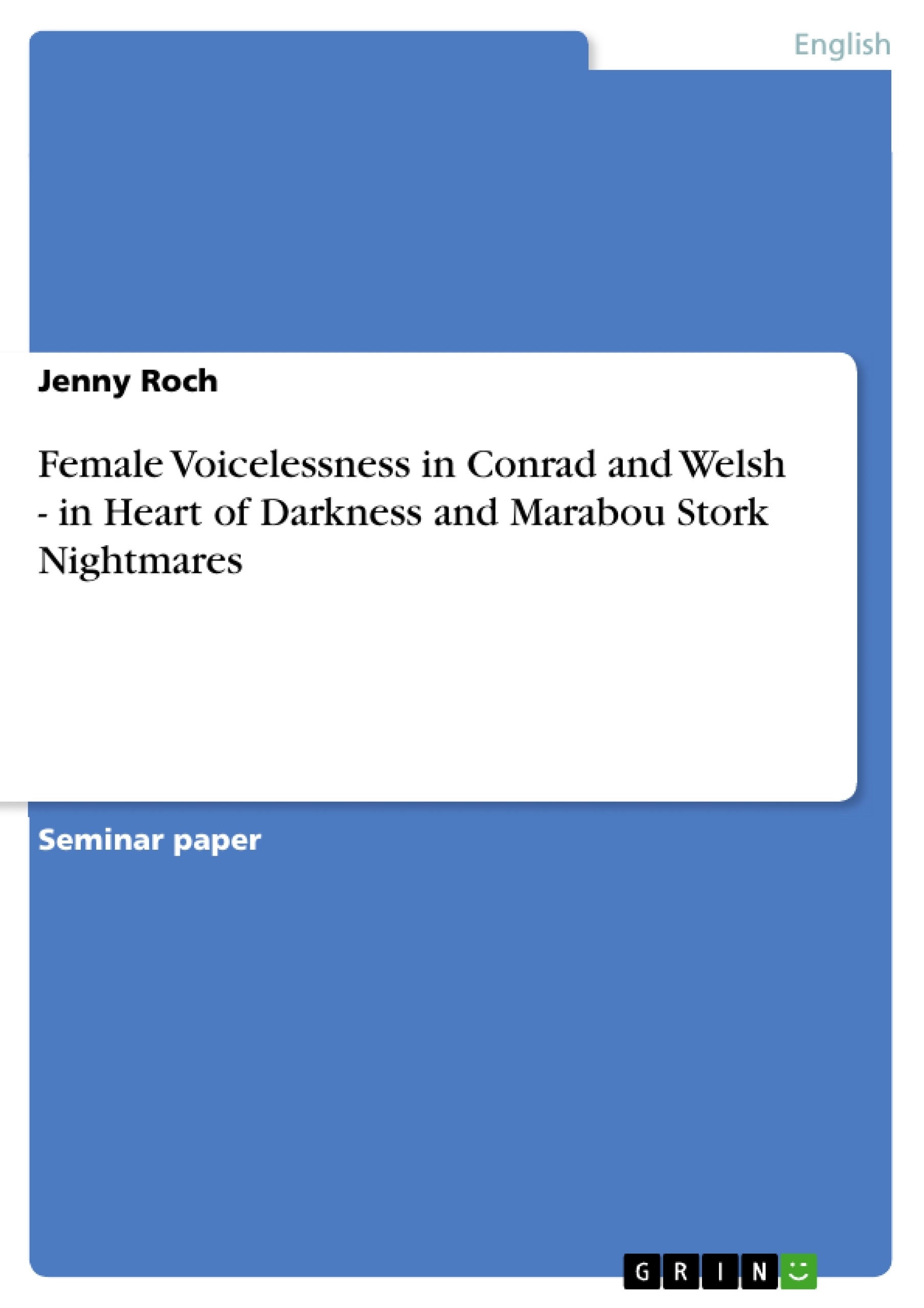While I was wearing out my grey cells recently, trying to come up with a decent essay title, I was unexpectedly aided by a bit of news. A judge in Wales had acquitted a man of rape because the violated woman was so drunk on the supposed crime, she could not remember whether she had consented to have sex with the suspect or not. Although I strongly agree that no suspect should be convicted until there is unmistakeable proof, this specific case made me think of the ways in which women are restricted in what they seem to be able to do. If a woman is to drunk to say anything, does that automatically mean consent or refusal? This bit of news made me think of how often, women seem to be voiceless, even in a world like ours which can almost be described as a post-feminism one. It might well seem a bid absurd or unrealistic to look at the role of women in two novels which have been written by men, maybe exclusively for men, and where women hover at the periphery. But it is exactly these particulars which make an analysis ofHeart of DarknessandMarabou Stork Nightmareseven more viable and interesting. They are two very different works in terms of style, period of conception and underlying ideologies. What this study of the role of women in these novels will show, hopefully, is that, although Conrad’s and Welsh’s novel seem to be so different altogether, women and their roles and functions they hold within the structure of the narrative are quite similar This enterprise will most certainly prove to be difficult, as women in both of the novels ‘are excluded from the privileges of power’1attributed to patriarchy. Part of this exclusion is voicelessness, the other ignorance or rather, no access to knowledge. This does obviously not mean that the women in the texts do not speak at all. They do speak, but when this is the case, it is only always inreactionto a man’s word or action. In other words, to make out the woman behind the reactive voice might prove quite difficult as their person as such is only ever mediated through a male narrator.
Inhaltsverzeichnis (Table of Contents)
- Female Voicelessness in Conrad and Welsh
- Heart of Darkness
- Marabou Stork Nightmares
Zielsetzung und Themenschwerpunkte (Objectives and Key Themes)
This study explores the portrayal of female characters in Joseph Conrad's "Heart of Darkness" and Irvine Welsh's "Marabou Stork Nightmares," highlighting their limited agency and voicelessness within the narrative structures. It examines how these novels, despite their stylistic and thematic differences, reflect a shared pattern of excluding women from positions of power and knowledge.
- Female Voicelessness in a Post-Feminist World
- The Influence of Victorian Conventions on Gender Roles
- The Marginalization of Women in Male-Dominated Narratives
- The Relationship Between Power, Knowledge, and Gender
- The Representation of Women as "Other" in Literature
Zusammenfassung der Kapitel (Chapter Summaries)
This section will provide summaries of the key themes and arguments presented in each chapter. The focus will be on exploring the representation of women in "Heart of Darkness," particularly analyzing the roles and voices of Marlow's aunt, the black woman in the jungle, and the Intended.
Schlüsselwörter (Keywords)
Key terms and concepts explored in this study include female voicelessness, post-feminism, Victorian conventions, gender roles, marginalization, power dynamics, knowledge, the "Other," and narrative representation.
Frequently Asked Questions
What is "female voicelessness" in literature?
It refers to the narrative exclusion of women from power and knowledge, where their voices are only reactive to male actions or mediated through male narrators.
How is this concept applied to "Heart of Darkness"?
The study analyzes characters like Marlow's aunt and the Intended, who are kept in ignorance and marginal roles within the colonial narrative.
What are the similarities between Conrad and Welsh regarding gender?
Despite different eras and styles, both authors depict women as "Other" and exclude them from the privileges of patriarchal power.
How do Victorian conventions influence these roles?
Conrad's work reflects Victorian ideologies that idealized women as domestic and innocent, effectively removing them from political and social agency.
Why analyze these novels from a post-feminist perspective?
The analysis shows that even in modern contexts, the structural voicelessness of women in male-dominated narratives remains a relevant critique.
- Arbeit zitieren
- Jenny Roch (Autor:in), 2006, Female Voicelessness in Conrad and Welsh - in Heart of Darkness and Marabou Stork Nightmares, München, GRIN Verlag, https://www.grin.com/document/50448



